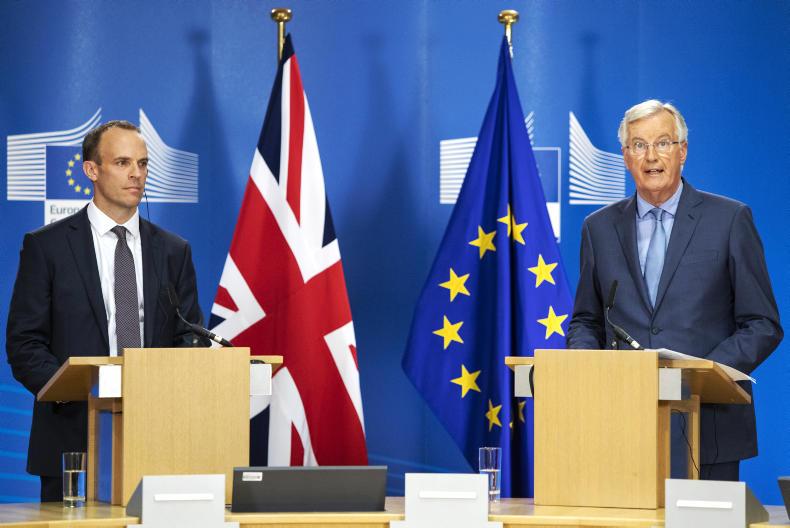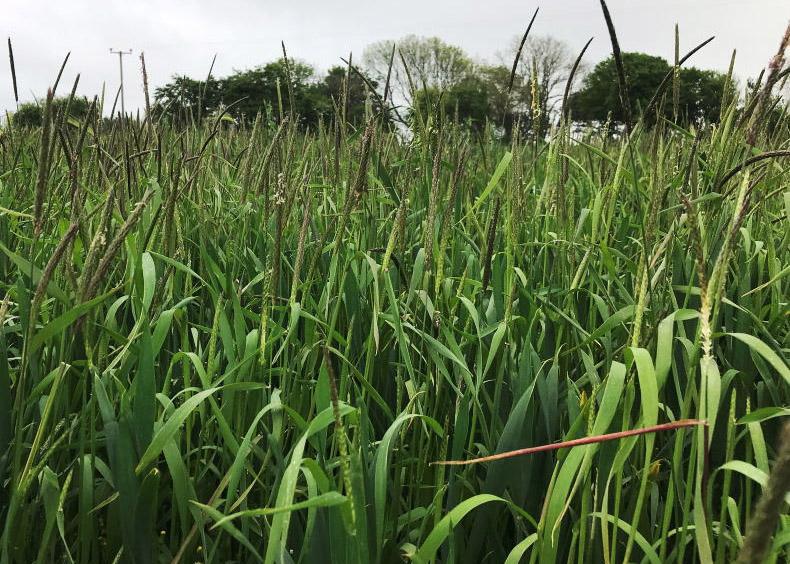Last week the British government published the first batch of papers designed to explain its plans to mitigate the potential impact of a no-deal Brexit.
Included was guidance specifically related to farm payments, although, in truth, there was nothing in that paper we didn’t already know. The government has committed to the same cash total in funds for farm support until the end of this parliament, expected in 2022. It is a commitment that has already been repeated on numerous occasions.
Of much more immediate concern for the agri food industry is what happens to trade flows in the event of a no-deal Brexit. Over the last few weeks we have heard some dire warnings from farming leaders about the impact of no deal, where the UK exits on 30 March 2019 and is immediately treated as a third country by the remaining 27 EU member states.
The economic consequences of that could be extremely severe for everyone, so it seems almost unbelievable that common sense won’t prevail in the end and an agreement will be reached. At the same time, however, those who advocated and voted for Brexit surely must have been aware that no deal was a possible outcome. Meanwhile, it is approaching 600 days since there was last an executive at Stormont and with Brexit now overhanging the process, a breakthrough between NI’s two largest political parties seems as far away as ever.
Without a minister in place everything is on hold, including TB policy, post-Brexit farm support, a third tranche of the Tier 1 capital grant scheme, aid for flood-affected farmers and a sustainable land management strategy, to name a few.
The sooner an executive is restored at Stormont the better. There are no winners in the current political vacuum, and surely it is about time that all of us accepted that a compromise must be found.
Read more
Sterling remains under pressure
Editorial: new technology can help drive farm profit
Last week the British government published the first batch of papers designed to explain its plans to mitigate the potential impact of a no-deal Brexit.
Included was guidance specifically related to farm payments, although, in truth, there was nothing in that paper we didn’t already know. The government has committed to the same cash total in funds for farm support until the end of this parliament, expected in 2022. It is a commitment that has already been repeated on numerous occasions.
Of much more immediate concern for the agri food industry is what happens to trade flows in the event of a no-deal Brexit. Over the last few weeks we have heard some dire warnings from farming leaders about the impact of no deal, where the UK exits on 30 March 2019 and is immediately treated as a third country by the remaining 27 EU member states.
The economic consequences of that could be extremely severe for everyone, so it seems almost unbelievable that common sense won’t prevail in the end and an agreement will be reached. At the same time, however, those who advocated and voted for Brexit surely must have been aware that no deal was a possible outcome. Meanwhile, it is approaching 600 days since there was last an executive at Stormont and with Brexit now overhanging the process, a breakthrough between NI’s two largest political parties seems as far away as ever.
Without a minister in place everything is on hold, including TB policy, post-Brexit farm support, a third tranche of the Tier 1 capital grant scheme, aid for flood-affected farmers and a sustainable land management strategy, to name a few.
The sooner an executive is restored at Stormont the better. There are no winners in the current political vacuum, and surely it is about time that all of us accepted that a compromise must be found.
Read more
Sterling remains under pressure
Editorial: new technology can help drive farm profit










SHARING OPTIONS